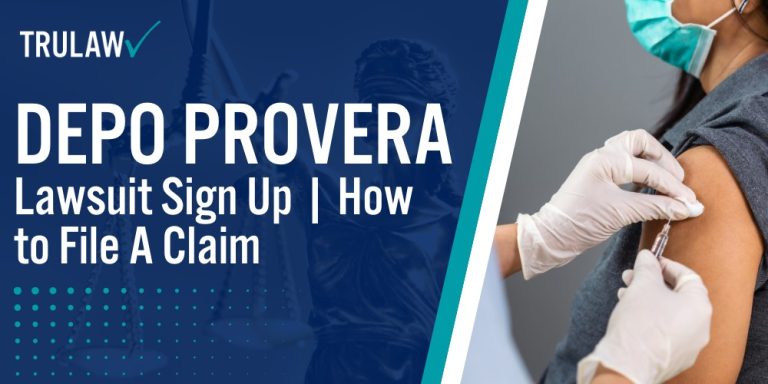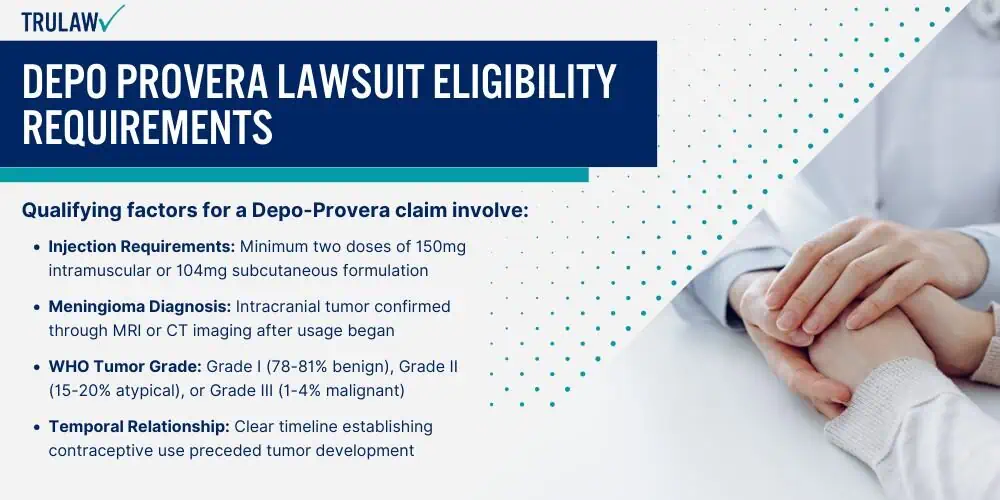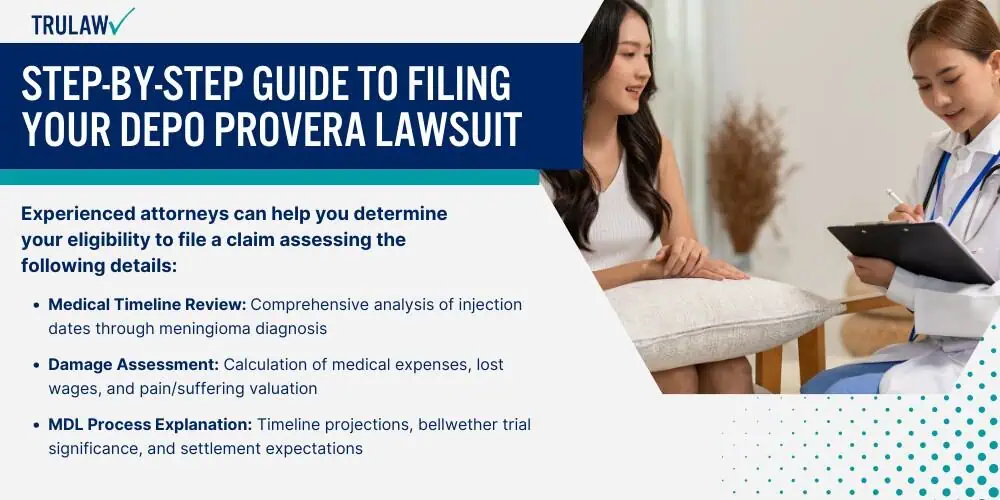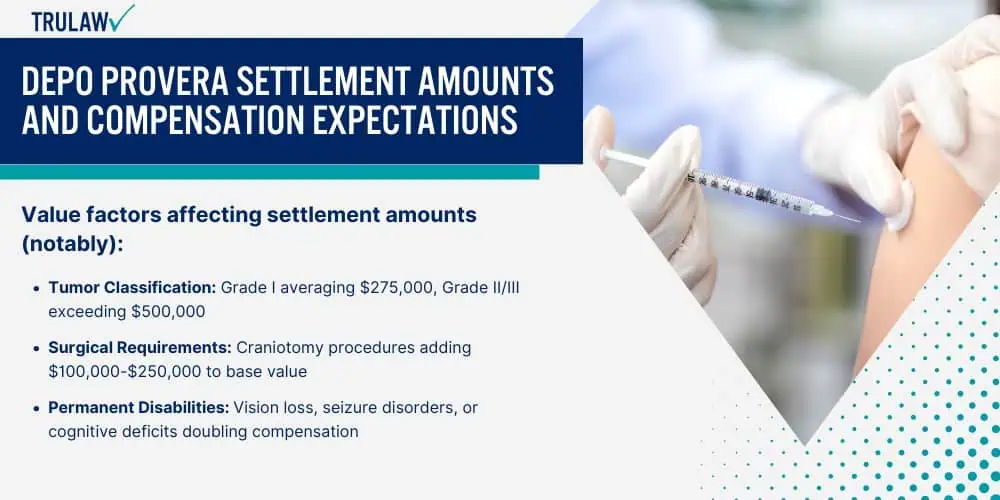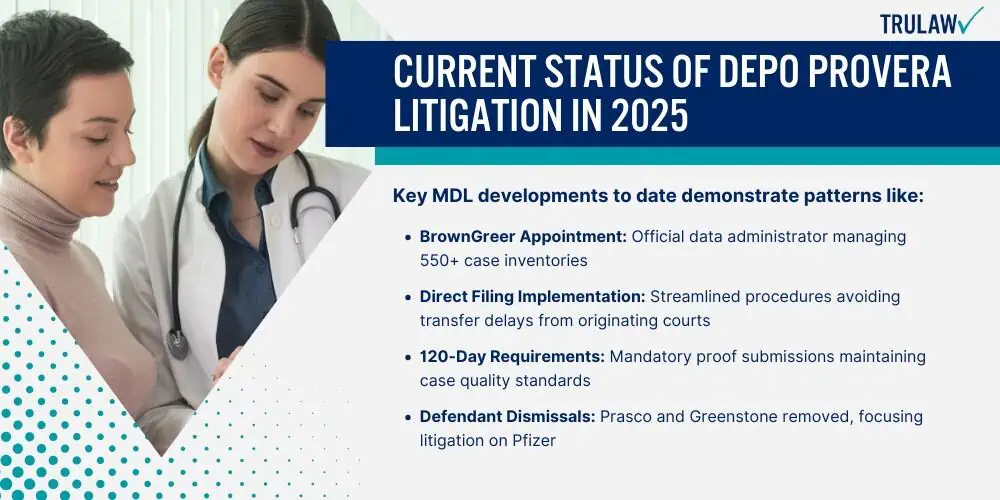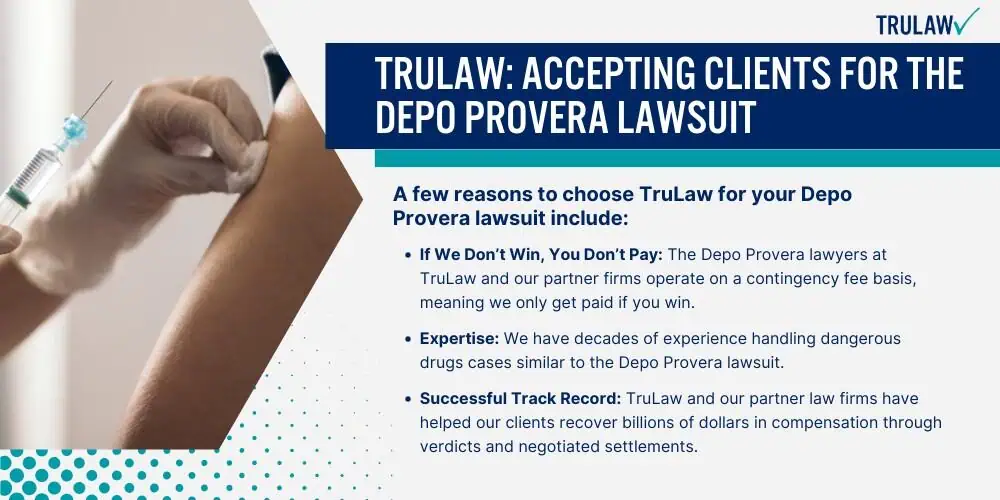TruLaw is actively accepting clients for the Depo-Provera meningioma litigation through their instant case evaluation tool, with cases being consolidated into MDL-3140 in the Northern District of Florida under Judge M. Casey Rodgers.
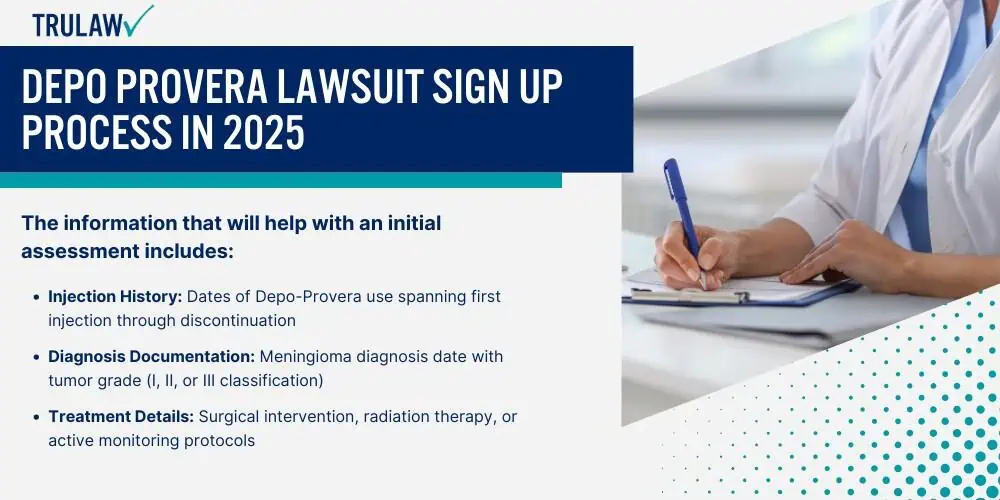
The sign-up process involves confirming eligibility based on your injection history and meningioma diagnosis, gathering comprehensive medical documentation, and working with experienced attorneys who partner with mass tort litigation leaders to maximize compensation potential for women harmed by this contraceptive injection.
Initial Case Evaluation and Instant Eligibility Check
TruLaw’s chatbot instant case evaluation feature provides immediate feedback on your eligibility by assessing key factors including your injection history, meningioma diagnosis timing, and medical treatment received for your brain tumor.
This can eliminate lengthy phone consultations by quickly determining whether you meet the basic criteria for filing a claim, allowing you to understand your legal options within minutes rather than days or weeks.
The information that will help with an initial assessment includes:
- Injection History: Dates of Depo-Provera use spanning first injection through discontinuation
- Diagnosis Documentation: Meningioma diagnosis date with tumor grade (I, II, or III classification)
- Treatment Details: Surgical intervention, radiation therapy, or active monitoring protocols
- Current Symptoms: Neurological disabilities including seizures, vision loss, or cognitive impairment
- Provider Information: Names and locations of medical facilities administering injections
- Insurance Records: Coverage details for Depo-Provera prescriptions and claims
- Generic Versions: Documentation of authorized generic manufacturers (Greenstone, Viatris, Prasco)
- Usage Duration: Total number of injections received and frequency of administration
- Imaging Timeline: Dates of MRI or CT scans showing tumor discovery and progression
With over 550 cases currently pending in the MDL and the BMJ study showing a 5.6-fold increased risk for prolonged users, early case evaluation helps preserve your rights before state-specific statute of limitations expire.
Required Documentation for Your Depo Provera Claim
Comprehensive medical documentation forms the foundation of a successful Depo-Provera claim, requiring records that definitively prove at least two injections and a confirmed meningioma diagnosis through brain imaging studies.
The BrownGreer MDL Centrality system, appointed as the official data administrator for this litigation, has established specific documentation requirements that all plaintiffs must meet within 120 days of filing their case or face potential dismissal.
The MDL requires comprehensive documentation proving both exposure and injury through:
- Medical Records: Injection administration dates showing 150mg intramuscular or 104mg subcutaneous doses
- Imaging Results: MRI or CT scan reports with radiologist interpretation confirming meningioma
- Surgical Documentation: Operative notes detailing craniotomy procedures and tumor location
- Prescription Records: Pharmacy dispensing logs spanning entire contraceptive usage period
- Insurance Claims: EOB statements documenting injection coverage and administration codes
- Pathology Reports: Histological analysis confirming meningioma grade and cellular characteristics
- Specialist Consultations: Neurosurgeon and neurologist evaluation notes
- Disability Records: Social Security or employer documentation of work limitations
The BrownGreer MDL Centrality system enforces strict requirements including a 5-page limit for initial proof submissions per product and per injury, with all documents requiring proper bookmarking to identify relevant pages.
This standardized approach ensures efficient processing of claims while maintaining the integrity of evidence needed to prove both usage and injury, with deficiencies flagged for correction within ten business days to avoid Show Cause Orders from the court.
Working with TruLaw’s Depo Provera Attorneys
Jessica Paluch-Hoerman’s leadership at TruLaw brings decades of experience in pharmaceutical litigation, with the firm’s strategic partnerships with mass tort litigation leaders who specialize in product liability cases against major drug manufacturers.
TruLaw’s approach combines personalized attention with the resources of a nationwide legal network, ensuring each client receives individualized case management while benefiting from the collective expertise of attorneys who have successfully challenged pharmaceutical giants in previous litigation.
When you choose TruLaw for your Depo-Provera case:
- Contingency Fee Structure: No upfront costs with fees only collected from successful recoveries (33-40%)
- Personalized Management: Dedicated case coordinators providing regular updates throughout litigation
- Medical Expert Network: Access to neurologists and epidemiologists specializing in meningioma research
- MDL Coordination: Direct participation in MDL-3140 leadership committees and strategy sessions
- Case Progress Updates: Monthly communications regarding discovery milestones and settlement discussions
- Document Assistance: Court-authorized medical record retrieval for missing documentation
- Technology Platform: Digital case management system for real-time status tracking
TruLaw’s track record includes over $3 billion in verdicts and settlements across their partner network, demonstrating proven capability to take on major pharmaceutical companies like Pfizer and achieve meaningful compensation for clients injured by dangerous drugs.
If you or a loved one developed a meningioma brain tumor after using Depo-Provera, you may be eligible to seek compensation.
Contact TruLaw using the chat on this page to receive an instant case evaluation and determine whether you qualify to join others in filing a Depo-Provera Lawsuit today.
